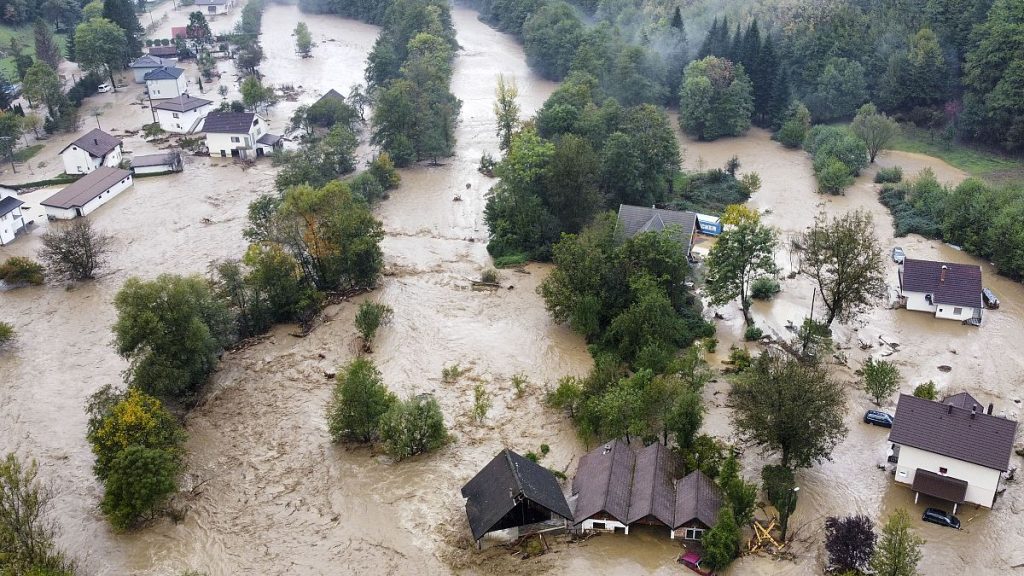Rescue teams in southern Bosnia are facing the aftermath of severe flooding and landslides caused by heavy rainstorms, with at least 16 people reported dead and several missing. The government has declared a state of emergency and allocated €10 million for disaster relief efforts. The flooding has affected towns and villages in central and southern parts of the country, with surging waters inundating homes while people were asleep. The situation has prompted calls for volunteers and army assistance to aid in search and rescue operations as roads remain closed and many houses are without electricity.
In the town of Fojnica, one resident described how he was woken up by his dog’s barking at 4 am, only to find water flooding into his home. The water quickly rose, submerging his garage, basement, car, and even his dog. The floods have devastated communities, with reports of at least 14 deaths in and around Jablanica initially, though this toll has since increased. The Defence Minister has reported that troops have been mobilized to assist in rescue efforts, focusing on saving those trapped alive in houses affected by landslides.
Power outages and disrupted communication services have further complicated rescue operations in towns like Jablanica and Kiseljak. The town of Jablanica has become entirely inaccessible due to closed roads and trainlines, making it challenging for aid workers to reach those in need. The ongoing flooding and landslides have prompted discussions about potentially postponing local elections scheduled for the weekend across Bosnia. The President of the Central Election Commission is liaising with local electoral commissions in the worst-hit areas to determine whether elections should be delayed only in flooded regions or nationwide.
Neighboring countries in the region, including Croatia, Slovenia, and Montenegro, have also experienced heavy rains, strong winds, and flooding. Roads have been closed in Croatia, and Zagreb is preparing for the Sava River to overflow its banks, while in Slovenia, the Sava, Krka, and Kolpa rivers have flooded, causing damage to houses in the central village of Kot. The national meteorological agency has warned of more rain and potential landslides in the coming days. In Montenegro, south of Bosnia, villages have been isolated, and homes and roads inundated by floodwaters, adding to the region’s challenges in the wake of the severe weather events.
The crisis in Bosnia has prompted a rapid and coordinated response from government and emergency services, with the deployment of resources and personnel to conduct search and rescue operations, provide disaster relief, and address the immediate needs of affected communities. The scale of the flooding and landslides has been described as catastrophic, leading to significant loss of life and widespread destruction of property and infrastructure. The situation remains dynamic, with ongoing challenges related to accessibility, power outages, and communication disruptions hindering relief efforts. The region’s vulnerability to extreme weather events underscores the importance of preparedness, resilience, and cross-border cooperation in responding to natural disasters and mitigating their impacts on human lives and livelihoods.
As the situation continues to evolve, the focus remains on saving lives, supporting affected communities, and restoring essential services in the aftermath of the flooding and landslides. The immediate priorities include locating missing persons, providing medical assistance to the injured, and ensuring access to clean water, food, and shelter for those displaced by the disaster. Communication and coordination among government agencies, emergency services, civil society organizations, and international partners are essential to effectively respond to the crisis and address the short-term and long-term needs of the affected populations. The resilience and solidarity of the people in Bosnia and neighboring countries will be crucial in overcoming the challenges posed by the severe weather events and rebuilding communities in the face of adversity.


